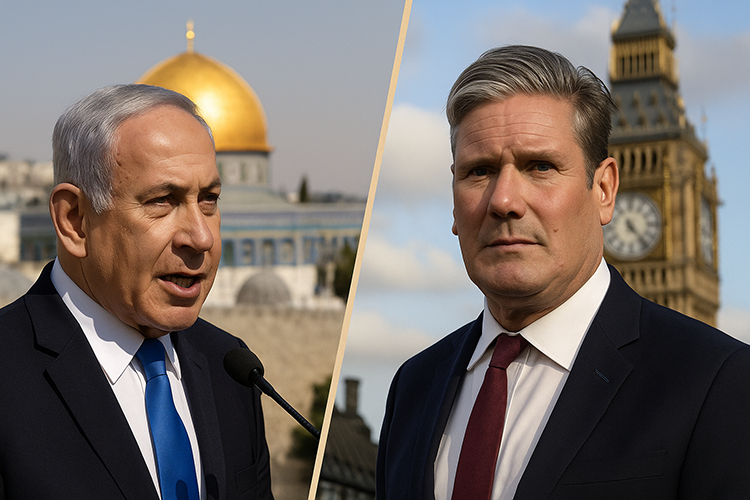2025-09-27
indicators

Diplomatic tensions escalated this week as Britain formally recognised Palestine, joining a group of Western governments that includes France, Canada and Australia. Prime Minister Keir Starmer framed the move as a step toward reviving prospects for peace, arguing that recognition should serve as a lever to bring both sides back to negotiations. Israel’s response was swift and forceful. Before leaving for the United Nations General Assembly, Prime Minister Benjamin Netanyahu promised to directly call out Starmer and other leaders who had endorsed Palestinian statehood. He characterised the decisions as rewarding violence and pledged to present Israel’s case in uncompromising terms during his speech in New York. The timing is significant. More than 140 countries worldwide already acknowledge Palestinian statehood, but until now few of the world’s wealthiest nations had joined that list. Britain’s shift is notable both because of its influence within the G7 and its historic role in the Middle East. Observers describe it as one of the clearest signs of frustration in Western capitals with the lack of progress toward a political solution. At the UN, Netanyahu delivered a combative address reiterating his opposition to unilateral recognition. He argued that statehood without direct agreement would imperil Israel’s security and embolden militants. His remarks drew sharp reactions in the chamber, with some delegations walking out in protest. Critics accused him of ignoring the humanitarian crisis in Gaza while doubling down on a military-first message. The Israeli leader’s stance enjoys near-unanimous backing at home, where both coalition and opposition parties reject recognition outside of a negotiated framework. Analysts suggest Netanyahu is also under pressure from international legal proceedings, with warrants issued by the International Criminal Court against senior Israeli figures over the Gaza conflict. That legal backdrop may be reinforcing his determination to confront moves he sees as undermining Israel’s legitimacy. For supporters of recognition, the recent wave of announcements represents an attempt to break years of stalemate. Advocates argue that without concrete action, the prospect of a viable Palestinian state will continue to erode amid settlement expansion and entrenched control. Symbolic recognition, they contend, at least affirms Palestinian political rights and signals impatience with Israel’s current trajectory. Critics counter that recognition risks being hollow, since Israel retains decisive control over borders, security and territory. Without enforceable commitments on both sides, they warn, the declarations could raise expectations while changing little on the ground. Some also argue that unilateral moves give militants rhetorical victories and reduce incentives for compromise. The debate within the UK reflects these tensions. Public opinion is mixed, with surveys showing both significant support and opposition to recognition, often depending on how the question is framed. Within Starmer’s Labour Party, the decision has been welcomed by some as a historic correction, while others fear it could complicate relations with allies and alienate segments of the electorate. What is clear is that Britain’s step has emboldened similar moves elsewhere in Europe. Portugal and France have issued supportive statements, while Canada and Australia made their own announcements almost in tandem with London. This clustering of recognitions signals a broader diplomatic shift, one that places Netanyahu increasingly at odds with partners Israel has long relied on for political support. The coming weeks will show whether the move generates new momentum for peace talks or hardens positions further. For now, it highlights the widening gulf between Israel’s insistence on negotiated statehood and a growing number of Western governments willing to formalise recognition as a political tool.

